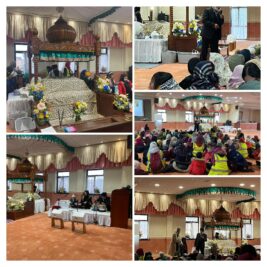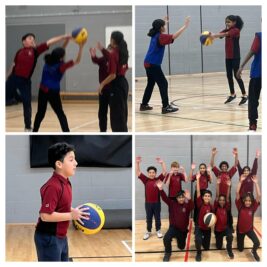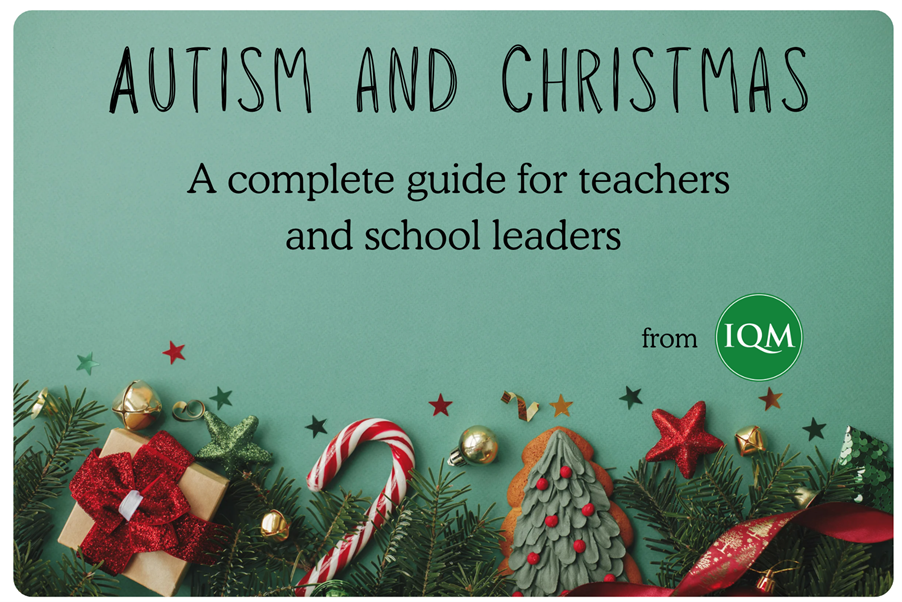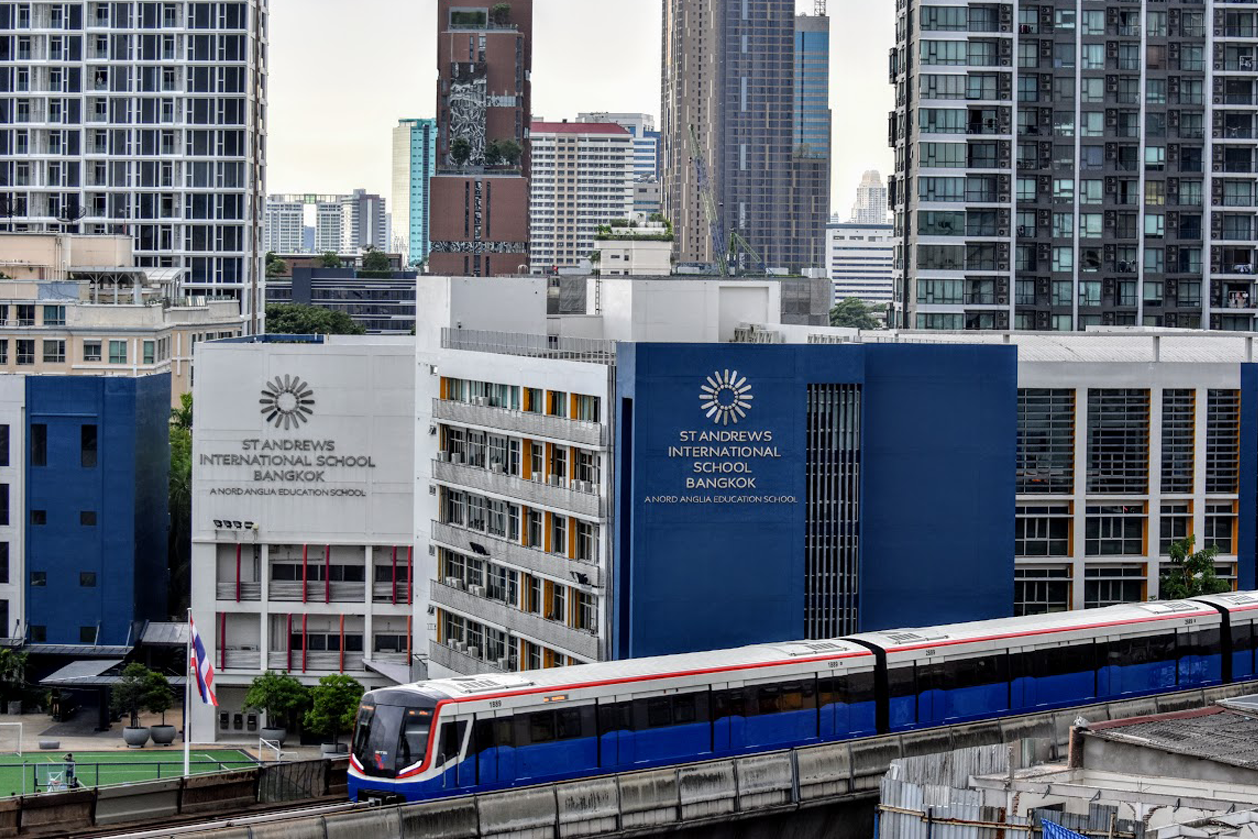Who is IQM?
IQM is the only national inclusion award in the UK. For over 20 years and in over 20 countries, schools, MATs and Local Authorities use the Inclusion Quality Mark to recognise exemplary inclusive practice.
Get in touch for your FREE school information pack today.
Pinner Park Primary Achieves Flagship Status
February 26, 2024
Pinner Park Primary School has achieved the Inclusive School Award with Flagship status.

Nurturing and Highly Inclusive School
Pinner Park Primary School is a large primary school based in Pinner, North London, serving families from a wide range of diverse cultures and needs. Pinner Park Primary is a nurturing and highly inclusive school that welcomes everyone who enters the building, in whatever capacity. The staff are friendly and kind and there is a friendly welcome from everyone you come across. Whilst the school educates over 800 pupils, it feels to those that visit, much smaller. A personal touch from the administrative and site staff supports this, as do the friendly “hellos” you will inevitably receive as you walk around. The school’s knowledge of their families is clear and forefront. Families are actively encouraged to visit. Governors talk of a “collective responsibility” for all their families and the challenges they face.
Pinner Park has a strong sense of identity, and you can feel this in the interactions as well as the displays and purposeful information that is shared with you. The school’s vision is encapsulated in three words ‘Learning, Character and Community’ and this is shared and known by all. There is a clear display of this in the entrance hall and you can find it on the website where the three values are explained and shared. Noticeably, people will share this with you when you meet and chat with them. Every staff member and pupil knows what ‘Learning, Character and Community’ means to them and their role. It is integral to the relationships at Pinner Park.

Purposeful and Calm
The environment is purposeful and calm and pupils can safely access areas around the school. However, the classroom sessions observed also allowed pupils to work energetically with high energy. Staff work with strong and focused confidence, delivering thoughtful sessions that scaffold learning expertly for all the pupils within their class. There is a strong drive to ensure that inclusion is embedded in Quality First Teaching and classrooms are designed thoughtfully to ensure that all pupils feel included even when accessing additional intervention groups.
Pinner Park is a successful school with a strong vision. It holds high expectations of its pupils and staff are creative in finding ways to overcome the barriers and challenges some may have. The school proudly shares that they want their curriculum to inspire and engage their pupils but also equip them to be ready for the next stage of learning. The focus on raising standards is relentless and uppermost in the minds of the teaching staff and leaders. Targets on the school’s development plan and through the Inclusion Quality Mark (IQM) Flagship Project are driven by the need to plan for ‘most’ and ‘some’, enabling their curriculum to unlock these pupils’ potential and enable social justice through better attainment. They “expect to be surprised by their potential”.
Focusing on inclusive teaching and considering accessibility for all drives this. There is an equal focus on wellbeing which is important to all who work and attend Pinner Park Primary. Enabling pupils to learn holistically about themselves, their community and the wider world is integral to their approach. At the heart of this approach is the principle that all pupils will be able to manage their emotions and learn in their own way. Sharing strategies with pupils and enabling them to choose, gives them choices within their learning and development.
Robust Curriculum
There is a relentless focus at Pinner Park to ensure that the curriculum meets the needs of all pupils and enables staff to deliver the highest quality of lessons across the curriculum. Leaders said that early intervention is key to enabling their pupils to make, “the very best start.” Strong curriculum programmes of study have been implemented from Early Years to ensure that pupils have access to high-quality literacy lessons. Leaders ensure fidelity to a consistent approach through strong monitoring processes. The school has developed robust curriculum resources such as ‘Literacy Tree’ which have been researched and trialled with careful consideration as to how they ‘fit’ Pinner Park Primary and the needs of its pupils.

There is a sense of relentlessness in getting it right for their pupils with a leader speaking of, “seeing things through the eyes of a disadvantaged pupil”. Questions are asked such as, “what does the provision look like?” and “what will it do for our pupils?” The curriculum is revisited frequently to check that it is fit for purpose. An example of this was the consideration of adapting the ‘Literacy Tree’ curriculum to support pupils in Years 5 and 6. As the curriculum was introduced later in Key Stage 2 (KS2), observations showed that pupils did not have a good enough understanding of what a good text type looked like. This was identified by leaders and adaptations were made to the curriculum to enable revision of these before moving on.

Well-thought-through planning enables teaching staff to place their focus and energy on how they will deliver the sessions and adapt the planning to enable all to access Age-Related Expectations (ARE). Teachers can support a high level of Special Educational Needs and Disabilities (SEND) within their classroom with minimal support and this evidences how capable the staff are at personalising learning opportunities. Leaders, including the Special Educational Needs Co-ordinator (SENCo), have worked hard recently to enable staff to understand the individual targets of those pupils with Education, Health and Care Plans (EHCPs). Staff have taken ownership of these pupils in a way that enables them to make suggestions and grow their knowledge. Pastoral and SEND leaders are nearby to support, but provision is now driven by the class teacher and Continuing Professional Development (CPD) drives what they need to know. This has increased their confidence and enabled leaders to support those pupils with a more significant or complex set of needs.
Pupils are Happy and Settled
High Quality First Teaching is embedded in all areas of the school. This teaching ensures that pupils are happy and settled when learning and can make progress successfully. Whilst visiting Reception, our Assessor saw how expertly planned and delivered sessions enabled pupils to learn how to read and spell words in synthetic phonics. Teachers used expert and thoughtful modelling that scaffolded pupils’ learning but also engaged the pupils in learning through discussion. An example of this was the teacher introducing two-syllable words to the pupils to read.
When reading ‘velvet’, the teacher used secure subject knowledge to talk through with the pupils how to read this phonetically and successfully. Afterwards, a conversation about what ‘velvet’ meant was encouraged. One pupil shared that she ate it, which led to a conversation about their favourite cakes. The teacher reinforced the importance of learning by saying, “you have taught us all something today!” In the sessions observed, children were confident in talking about their learning. Scaffolded tasks such as word and sound mats to support them in writing sentences were an example of this. When speaking to staff, they explained the process as giving pupils “strategies, not answers”. Pupils speak of teachers being “supportive” but “we help each other out too”. If they find something challenging, they mention that, “staff appear, we do one together and then they say, “off you go and try again”.
Cultural Capital is built into the school’s curriculum ensuring that it is purposeful for their pupils. The staff are proud of the diversity of authors and genres that have been embedded. Pupils are encouraged to share their own experiences through the conversations had within class. One leader says, “the pupils have become experts in the learning”. An example was shared in which pupils, having explored tribes through a text, had associated this with Hindu culture and inspired a conversation around, “where do I belong in the community?” The curriculum has enabled pupils to be challenged in their thinking and reflect upon what they think and “not absorb the opinions of others”.
Leadership is Purposeful

Leadership is purposeful, strong and distributed at Pinner Park Primary School. Governors have confidence in those who lead and manage the Pastoral and SEND provision within the school. The Chair of Governors explained that Governors supported the recruitment process for a new SENCo and the subsequent changes of the role. A fresh approach to the SENCo role has enabled the opportunity to distribute the responsibilities, empowering teachers to have a better understanding of the pupils in their class who have an EHCP. It has also enabled change beyond teaching staff, with support staff taking on extra responsibility and oversight of areas of SEND.
The Chair of Governors said that staff have, “risen to the challenge” of a new approach and Governors and Leaders feel that the school’s processes are more stable as they have reduced the “key person risk”. The school’s provision has kept momentum during this time and was proud of how resilient the leadership team had been. Governors feel well-informed by school leaders. They attend termly ‘Governor Days’ and the most recent focus on the curriculum work supported by the IQM Flagship Project. The Staff Governor explained this enabled the Governors to, “go deeper into areas” of focus. Link Governors are also structured within the team to ensure that key focus areas have oversight. There is a specific link Governor for SEND.
Driven by a clear strategic direction from the Headteacher, leaders are empowered to think creatively to respond to need and mobilise systems to secure improvements. The school’s approach to SEND has shifted considerably as they gain clarity around the inclusion offer they provide. They have been flexible and creative in their approaches as need develops across the school such as maximising the use of space to provide additional safe and secure spaces for learning. An example of this would be the response to the increase of early intervention for literacy, tools were strengthened and additional support staff were placed within Early Years and KS1. Whilst leaders are proud of what they have achieved, their discussions are centred around “what next?” There is a relentless push towards supporting all pupils to reach Age-Related Expectations. The Assistant Headteacher said that staff strive to, “be brave and aspirational for our Greater Depth Students”.
Staff Feel Well Supported

Staff feel well supported by those that lead them and it is evident that leaders strive to invest in their staff. As you walk around the school, staff are keen to talk to you freely about their work and focus. Staff are encouraged to make decisions themselves in the best interests of the pupils and have a real voice in the shaping of interventions and school development. The introduction of the new SSP documents has meant that staff have oversight of EHCP targets. They can request support and training to enable the ability to support these pupils within the classroom setting. For instance, one staff member mentioned that they had received specific training on supporting a pupil with Downs Syndrome enabling her to manage the learning needs whilst balancing the needs of the class.
The Literacy leader spoke of staff being involved in the implementation of the ‘The Literacy Tree’ curriculum. Staff were encouraged to review and tweak the resources together, finding a way forward we all agree with. Staff are then supported and coached to embed this further. There is an open and honest approach to change. Staff are passionate about what they do, so any change is rooted in research and reading to explain the reasoning. “Check-ins are in place to pick up ‘niggles’” and leaders highlight successes and impact publicly.
Pupils enjoy learning at Pinner Park Primary School. They feel and see the support that the adults who work with them give. They appreciate that staff enable them to be independent and the agency that they are given over the tasks they complete. One pupil said that the choices in learning gave them a “challenge and helped me push myself”. Pupils also notice the additional resources that are made available to help them such as word mats, dictionaries and times tables prompt cards. One pupil mentioned that, “my teacher knows me well and what I need. They are extraordinary and repeat things repeatedly”.
There is an extensive list of extra-curricular activities on offer and the opportunity to try “new things” as the pupils call them. Street Dance, Gymnastics, Tennis, football and drama are a few of the activities pupils told me they enjoy doing after school. Leaders and staff are keen to widen the experiences that pupils have beyond the classroom. The pupils talked of trips to the National History Museum, Wildlife Park and “to a zoo to see real animals”. The curriculum is used to expand their knowledge of the world locally, nationally and internationally. Books are carefully chosen to challenge their knowledge of the world, but also to open their eyes to other opportunities.
Find out more about the IQM Inclusive School Award
If your school is interested in obtaining the IQM Inclusive School Award or you wish to talk to a member of the IQM team please telephone:
028 7127 7857 (9.00 am to 5.00 pm)
or email: admin@iqmaward.com for further details.
Want more information on the IQM Award? Click here to request your free IQM information pack.
Other Posts

About IQM
The only national award for inclusion in the UK, IQM has been committed to recognising exemplary inclusive schools for over 20 years and in over 20 countries around the world. The three awards allow schools and organisations to celebrate their inclusive practice against nationally recognised framework.
Site Links
© 2026 Inclusion Quality Mark | website developed & cared for by digidoda


